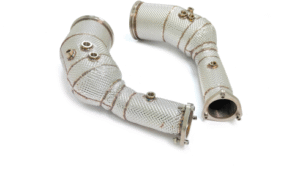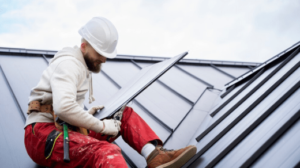Hot water heaters are essential components of any home, providing comfort and convenience for everyday tasks such as bathing, cooking, and cleaning. However, when a hot water heater malfunctions, it can lead to significant disruptions and discomfort. Understanding the steps to take during an emergency and knowing when to call for professional hot water heater repair can save you time, stress, and money.
Identifying Common Issues
Before seeking hot water heater repair, it’s crucial to recognize the signs of a malfunction. Common issues include:
1. No Hot Water
One of the most immediate indicators of a problem is a lack of hot water. If your faucets are only delivering cold water, this could signify a failed heating element, a malfunctioning thermostat, or an issue with the power supply for electric heaters. For gas heaters, a pilot light that has gone out may be the culprit.
2. Strange Noises
Banging, rumbling, or popping noises coming from your hot water heater can indicate sediment buildup at the bottom of the tank. This sediment can overheat and cause damage to the heating elements. Ignoring these sounds can lead to more severe problems and potentially costly repairs.
3. Leaks and Water Damage
Puddles of water around the base of the heater are a clear sign that something is wrong. Leaks can result from corroded pipes, faulty connections, or a cracked tank. Addressing leaks promptly is crucial to prevent extensive water damage to your home.
Immediate Steps to Take
When you encounter a hot water heater emergency, follow these steps to mitigate the situation:
1. Turn Off the Power Supply
For electric hot water heaters, locate the circuit breaker and turn off the power. For gas heaters, turn off the gas supply. This step is vital to prevent any electrical hazards or gas leaks while you address the problem.
2. Shut Off the Water Supply
To avoid further water damage, shut off the water supply to the heater. Most heaters have a valve on the cold water line that can be turned clockwise to stop the flow of water. This action will help minimize any flooding in your home.
3. Assess the Situation
Take a moment to inspect the heater. Look for visible leaks, check the pressure relief valve for leaks, and listen for unusual noises. If you feel comfortable doing so, check the pilot light on gas heaters or the reset button on electric heaters. However, avoid any actions that could be dangerous or lead to further damage.
When to Call a Plumber
While some minor issues can be addressed on your own, it’s essential to know when to call a professional plumber for hot water heater repair. Here are some scenarios that warrant professional intervention:
1. Persistent Problems
If you’ve attempted basic troubleshooting and the issue persists, it’s time to contact a plumber. Continuing to use a malfunctioning heater can lead to more severe damage and higher repair costs.
2. Significant Leaks
If your hot water heater is leaking significantly, it’s crucial to call a plumber immediately. A professional can assess the situation and determine whether repair or replacement is necessary.
3. Age of the Unit
If your hot water heater is over ten years old and experiencing issues, it may be more cost-effective to replace it rather than repair it. A plumber can help you evaluate the condition of your unit and recommend the best course of action.
Preventive Measures
To minimize the risk of emergencies in the future, consider implementing these preventive measures:
1. Regular Maintenance
Schedule annual maintenance with a qualified plumber. Routine inspections can identify potential problems before they escalate into emergencies. During maintenance, the plumber can flush the tank to remove sediment buildup and check the components for wear and tear.
2. Temperature Settings
Set your hot water heater to 120 degrees Fahrenheit. This temperature is hot enough for most household needs while reducing the risk of overheating and energy waste.
3. Install a Drain Pan
Consider installing a drain pan under your hot water heater to catch leaks before they cause water damage. This simple addition can provide peace of mind and protection for your flooring.
Conclusion
Experiencing a hot water heater emergency can be stressful, but knowing how to respond can alleviate some of that anxiety. By recognizing common issues, taking immediate action, and understanding when to call a professional plumber for hot water heater repair, you can navigate these emergencies more effectively. Implementing preventive measures will also ensure your hot water heater remains in optimal condition, providing you with the comfort and convenience you rely on.






